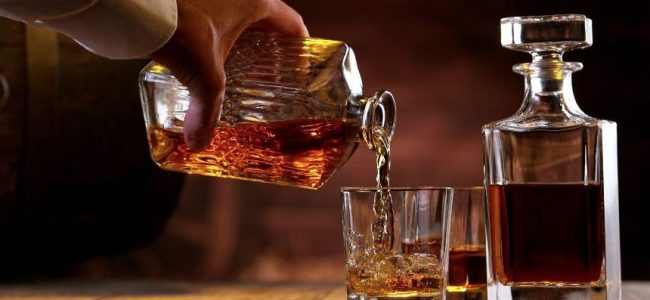BlogLine
Bourbon and bar fights: an overview of Kentucky’s Dram Shop statute in assault cases
3/7/24

By: Austin Anderson and Curt M. Graham
In 1988, Kentucky enacted its “Dram Shop” statute. The law, codified at KRS 413.241, states that no licensed seller of alcohol shall be liable to a person who was injured by an intoxicated individual off the premises of the dram shop “unless a reasonable person under the same or similar circumstances should know that the person served is already intoxicated at the time of serving.” Though the law was intended to limit liability against dram shops, plaintiffs now frequently use 413.241 as a cause of action for alcohol-related injuries.
The statute was intended to apply to situations where an overserved and intoxicated driver injured another driver after leaving a bar or club. However, in 1999, the statute was used in an assault case for the first time in the landmark case of Isaacs v. Smith, 5 S.W.3d 500 (Ky. 1999).
In Isaacs, two groups in a nightclub had a brief shouting match after a member of one group had bumped an ashtray into a member of the other group. The nightclub ejected neither group, nor did it stop serving either group alcohol. Later in the evening, a member of one group shot a member of the other group in the back. The nightclub successfully moved for summary judgment because although it was undisputed the assailant was overserved, intoxicated, and had fought with the victim earlier in the night, it was unforeseeable as a matter of law that he would then attack another patron with a handgun.
On appeal, the Kentucky Supreme Court affirmed the trial court’s granting of summary judgment for the nightclub based on unforeseeability despite the evidence of the prior shouting altercation and the uncontradicted evidence that the assailant was overserved. The lasting impact of Isaacs is that it “distinguished the incidence of violence (a volitional act with the specific intent of harming someone) from the act of driving while intoxicated.”1 Kentucky courts have since created a bright line rule that intentional torts, such as assaults, are not generally foreseeable as a matter of law for dram shops.
Since Isaacs, injured plaintiffs have consistently challenged the ruling, attempting to carve out exceptions or have the decision reversed entirely. To date, despite dozens of challenges, Kentucky courts have declined to undermine Isaacs in any way.2
With more and more counties in Kentucky permitting the sale of alcohol, the number of challenges is sure to rise. It’s unclear whether Kentucky will ever pull back on Isaacs, but we are likely due for another challenge in the coming years. As it stands currently, dram shops are broadly protected under the law in “bar fight” scenarios, but it is critical to have experienced attorneys to navigate the often-murky waters.
FMG attorneys Curt Graham and Austin Anderson regularly represent dram shops in a variety of claims in both Kentucky and Indiana, including obtaining a favorable verdict in a dram shop trial in 2023. If you have questions or would like more information, please contact Curt Graham at CGraham@fmglaw.com, Austin Anderson at AAnderson@fmglaw.com or your FMG relationship partner.
______________________________________________________
- Shimkowiak v. Yucatan at the Landing, Ltd., No. 2004-CA-002093-MR, 2005 Ky. App. Unpub. LEXIS 724, at *5 (Ct. App. Sep. 16, 2005). ↩︎
- See e.g., Murphy v. Second St. Corp., 48 S.W.3d 571 (Ky. Ct. App. 2001) (holding that dram shop had no duty to prevent assault, assault was unforeseeable despite undisputed evidence of assailant’s intoxication), Wilkerson v. Williams, 336 S.W.3d 919, 923 (Ky. Ct. App. 2011) (“Kentucky courts have refused to impose liability on bar owners for such assaults.”); Tinnell v. Holman, No. 2005-CA-002537-MR, 2007 Ky. App. Unpub. LEXIS 1199, at *9 (Ct. App. Apr. 6, 2007) (“If we apply [the Isaacs] reasoning to the present case, we must conclude that Holman’s attack on Tinnell and Durbin was not a natural and foreseeable consequence of being served too much alcohol.”); Martin v. Elkins, No. 2011-CA-000862-MR, 2012 Ky. App. Unpub. LEXIS 1004, at *8 (Ct. App. Aug. 31, 2012) (“The law is clear that intentional torts against third parties, such as bar fights, assaults, and shootings, are not foreseeable to social hosts or bar owners.”). ↩︎
Share
Save Print